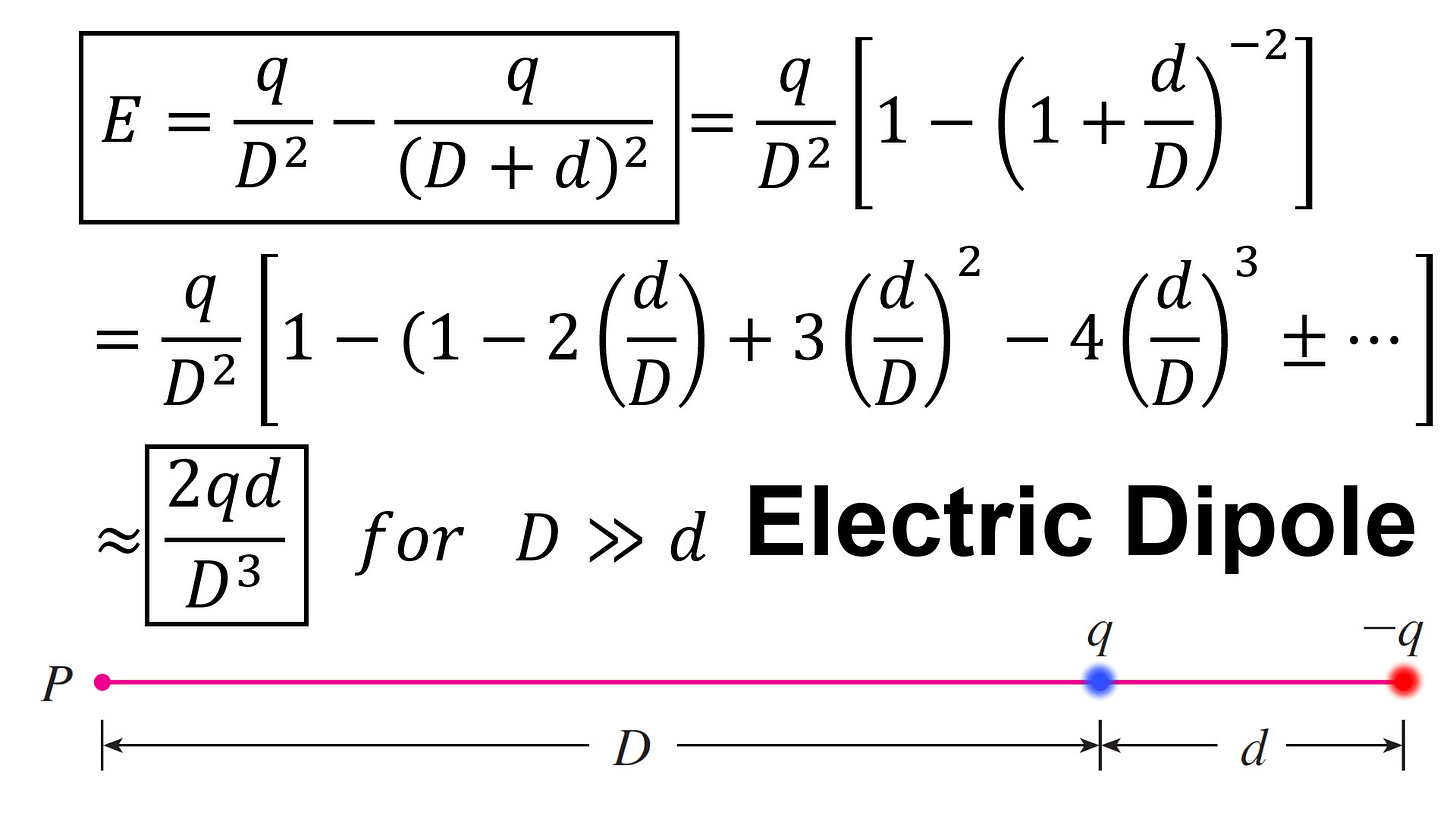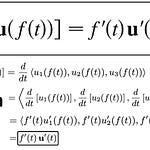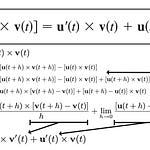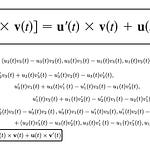Watch on YouTube - Video notes - Full video and playlist - Infinite Sequences and Series playlist
In this video, I use the binomial series approximation to demonstrate that the electric field (E) of an electric dipole (two equal but opposite charges separated by a small distance) is proportional to 1 over the distance cubed when measured from a far distance. Normally, the electric field (E) of a single charge is proportional to the charge divided by the distance squared. However, for a dipole, we must subtract the electric field of one charge from the electric field of the other. By applying the binomial series to rewrite E and considering the limit at large distances, higher-order terms (second-order and beyond) approach zero. This simplification yields the approximate result: E ≈ 2dq/D³, where D is the distance from the dipole, d is the separation between the charges, and q is the magnitude of the charge.
Timestamps:
Exercise 3: Electric Dipoles: 0:00
Solution: Rewrite Electric Field equation to get d/D term: 1:38
Binomial series approximation for d/D term: 4:24
Plug in binomial series into electric field equation: 8:25
Electric field of a dipole is proportional to 1/D^3 when D is much greater than d: 10:58
E ≈ 2dq/D^3: 12:31











